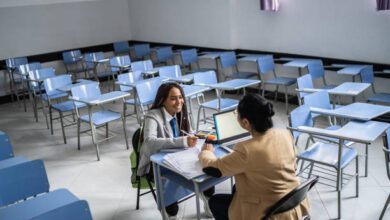Importance of Special Education teacher training


Teaching special education requires a unique set of skills and knowledge. Special education teachers are responsible for meeting the diverse needs of their students and ensuring that they receive a quality education in a supportive and inclusive environment. To effectively meet these responsibilities, it is crucial for special education teachers to undergo comprehensive training. This article will explore the importance of special education teacher training and highlight some key areas that training should cover.
Understanding the unique needs of special teacher training
Special education students have diverse needs and learning styles, which require teachers to have a deep understanding of various disabilities and exceptionalities. Special education teacher training should provide educators with knowledge about different disabilities, such as autism spectrum disorder, attention-deficit/hyperactivity disorder (ADHD), specific learning disabilities, and emotional and behavioral disorders. Understanding these disabilities will help teachers to tailor their instruction and support strategies to meet the specific needs of each student.
Effective Strategies for Differentiating Instruction teacher training
One of the core principles of special education is the concept of differentiated instruction, which involves modifying teaching techniques to accommodate the individual needs of students. Special education teacher training should equip teachers with a variety of effective instructional strategies that can be adapted to meet the diverse needs of their students. These strategies may include providing extra support. Breaking down complex tasks into smaller steps, using visual aids, and incorporating multi-sensory approaches.
Creating a Supportive and Inclusive Classroom Environment
Creating a supportive and inclusive classroom environment is essential for the success of special education students. Teacher training should focus on developing skills to foster a positive. And accepting classroom culture where all students feel valued and respected. This includes promoting empathy and understanding among students, teaching conflict resolution skills, and implementing anti-bullying strategies. Special education teachers should also learn how to effectively collaborate with general education. Teachers and support staff to ensure that all students can actively participate and engage in classroom activities.
Utilizing Assistive Technology to Enhance Learning
Assistive technology plays a crucial role in supporting the learning and development of special education students. Special education teacher training should provide educators with the necessary knowledge. And skills to effectively integrate assistive technology into their teaching practice. This includes understanding different types of assistive technology devices and software, such as text-to-speech tools, alternative keyboards, and communication apps. Training should also address how to select and implement the most appropriate assistive technology based on a student’s individual needs.
Collaborating with Parents and Other Professionals for Student Success
Collaboration between teachers, parents, and other professionals is vital for the success of special education students. Teacher training should emphasize the importance of establishing strong partnerships with parents. As they play a critical role in their child’s education. Special education teachers should learn effective communication strategies. How to involve parents in the IEP (Individualized Education Program) process, and how to provide ongoing support and resources. Additionally, training should address the importance of collaborating with other professionals. Such as speech therapists, occupational therapists, and psychologists, to ensure a comprehensive and coordinated approach to student support.
Conclusion
Special education teacher training is of utmost importance for ensuring the success and well-being of special education students. It equips teachers with the necessary knowledge, skills, and strategies to provide high-quality instruction and support in a supportive and inclusive classroom environment. By understanding the unique needs of special education students, employing effective instructional strategies, creating an inclusive classroom environment, utilizing assistive technology, and collaborating with parents and other professionals, special education teachers can truly make a difference in the lives of their students. Continuous professional development and training are essential for special education teachers to stay current with the evolving field and provide the best possible education for their students.





